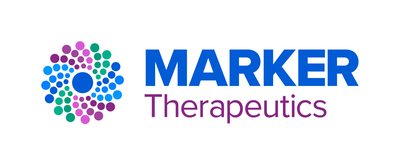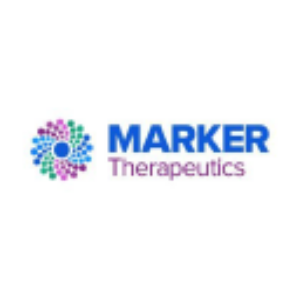Marker Therapeutics Announces that Data from Investigator-Sponsored Phase 1 Study With its MultiTAA-Specific T Cells to be Presented at the 2021 American Society of Hematology Annual Meeting
Marker Therapeutics (NASDAQ: MRKR) announced that data from its Phase 1 study on MultiTAA-specific T cells will be presented at the 2021 ASH Annual Meeting, set for December 11-14 in Atlanta and virtually. The oral presentation, titled "Donor-Derived Adoptive T-Cell Therapy Targeting Multiple Tumor Associated Antigens to Prevent Post-Transplant Relapse in Patients with ALL," will occur on December 12 at 12:30 p.m. ET. The study, conducted in partnership with Baylor College of Medicine, showcases Marker's innovative approach to T cell-based immunotherapies for hematological malignancies.
- Data from Phase 1 study on MultiTAA-specific T cells selected for oral presentation.
- Collaboration with Baylor College of Medicine on the research.
- Potential to prevent post-transplant relapse in leukemia patients.
- None.
Insights
Analyzing...
HOUSTON, Nov. 18, 2021 /PRNewswire/ -- Marker Therapeutics, Inc. (NASDAQ: MRKR), a clinical-stage immuno-oncology company specializing in the development of next-generation T cell-based immunotherapies for the treatment of hematological malignancies and solid tumor indications, today announced that data from a Phase 1 study investigating its MultiTAA-specific T cells were selected for oral presentation at the 2021 American Society of Hematology (ASH) Annual Meeting. The results will be reviewed by investigators at the Baylor College of Medicine, Marker's research partner. ASH will take place from December 11-14, 2021, in Atlanta and in a virtual format.
Oral Presentation Details
Presentation Title: Donor-Derived Adoptive T-Cell Therapy Targeting Multiple Tumor Associated Antigens to Prevent Post-Transplant Relapse in Patients with ALL (Abstract #471)
Session Title: 704. Cellular Immunotherapies: Cellular Therapies for ALL
Session Date/Time: Sunday, December 12, 2021, 12:30 p.m. ET
Presenting Author: Dr. Swati Naik, MBBS, Center for Cell and Gene Therapy, Baylor College of Medicine
Location: Georgia World Congress Center, B401-B402 and virtual
The abstract is available on the American Society of Hematology 2021 Annual Meeting website and in a supplement to the November issue of Blood, an ASH journal.
About Marker Therapeutics, Inc.
Marker Therapeutics, Inc. is a clinical-stage immuno-oncology company specializing in the development of next-generation T cell-based immunotherapies for the treatment of hematological malignancies and solid tumor indications. Marker's cell therapy technology is based on the selective expansion of non-engineered, tumor-specific T cells that recognize tumor associated antigens (i.e. tumor targets) and kill tumor cells expressing those targets. This population of T cells is designed to attack multiple tumor targets following infusion into patients and to activate the patient's immune system to produce broad spectrum anti-tumor activity. Because Marker does not genetically engineer its T cell therapies, we believe that our product candidates will be easier and less expensive to manufacture, with reduced toxicities, compared to current engineered CAR-T and TCR-based approaches, and may provide patients with meaningful clinical benefit. As a result, Marker believes its portfolio of T cell therapies has a compelling product profile, as compared to current gene-modified CAR-T and TCR-based therapies.
To receive future press releases via email, please visit: https://www.markertherapeutics.com/email-alerts.
![]() View original content to download multimedia:https://www.prnewswire.com/news-releases/marker-therapeutics-announces-that-data-from-investigator-sponsored-phase-1-study-with-its-multitaa-specific-t-cells-to-be-presented-at-the-2021-american-society-of-hematology-annual-meeting-301428592.html
View original content to download multimedia:https://www.prnewswire.com/news-releases/marker-therapeutics-announces-that-data-from-investigator-sponsored-phase-1-study-with-its-multitaa-specific-t-cells-to-be-presented-at-the-2021-american-society-of-hematology-annual-meeting-301428592.html
SOURCE Marker Therapeutics, Inc.








